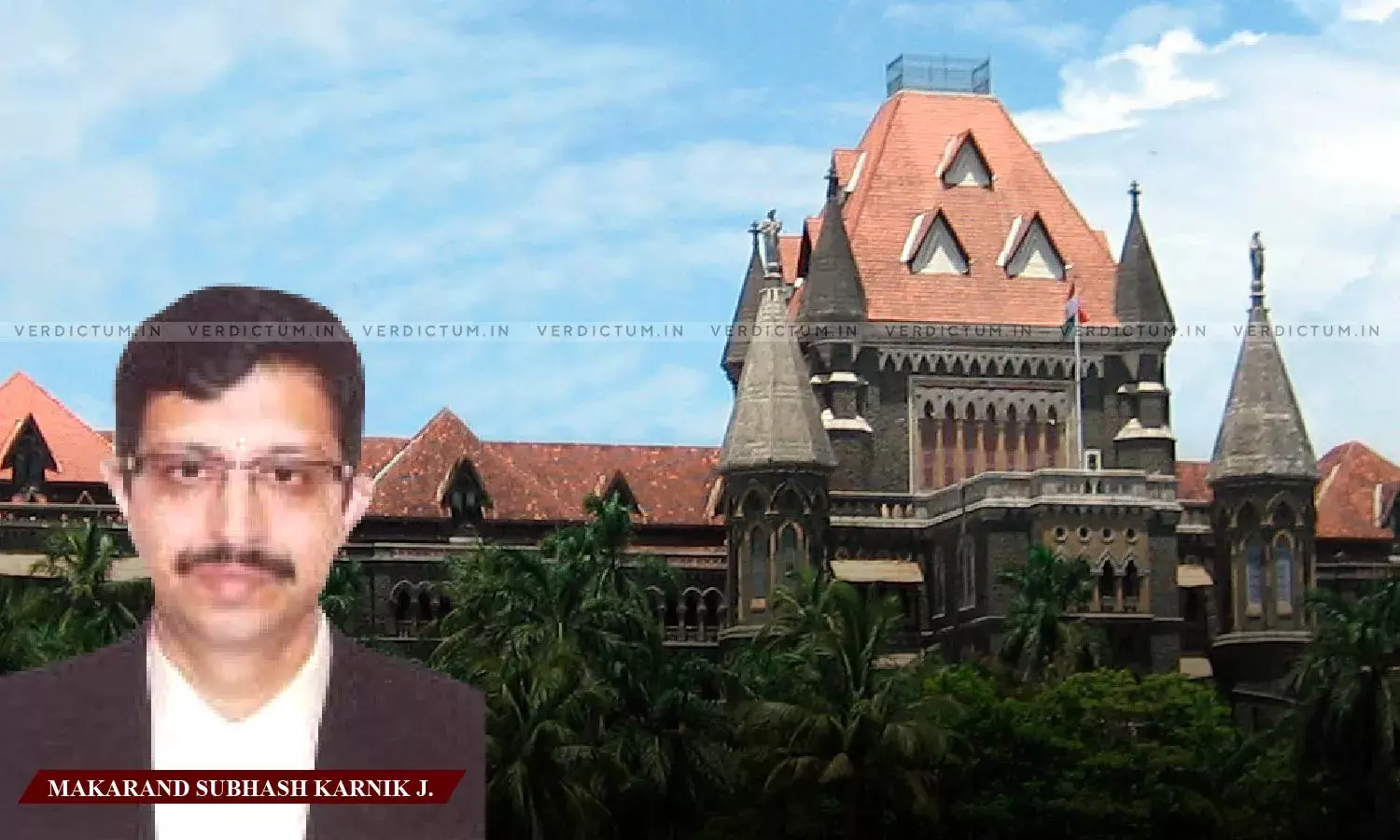Bombay HC Allows Accused Suffering From 83% Physical Disability To Present Himself Through Video Conferencing For Trial Court’s Judgment Pronouncement

The Bombay High Court permitted an accused suffering from 83% disability to present himself through video conferencing for the judgment of the Trial Court in a cheating case.
The accused had filed a writ petition regarding a case pending before the Session Special CBI (Central Bureau of Investigation) Court and the offence was under Sections 420, 120B, 419, 384 of the Indian Penal Code (IPC) read with Section 8 of the Prevention of Corruption Act, 1988 (PCA).
A Single Bench of Justice M.S. Karnik said, “Considering the peculiar facts of this case and having regard to the medical evidence on record coupled with the fact that the evidence of the petitioner is recorded through video conferencing and as he is suffering from 83% physical disability, in my opinion, in the interest of justice, this is a fit case where the judgment can be pronounced by the trial Court by permitting the petitioner to present himself through video conferencing.”
Advocate Dilip H. Shukla represented the petitioner while APP S.H. Yadav and Advocate Kuldeep Patil represented the respondents.
In this case, the accused was issued with a disability certificate in respect of the head injury and was suffering from 83% disability. In an earlier round of litigation where he had sought permission to record the evidence through video conferencing, the High Court passed an order. So far as his physical condition was concerned, even CBI conducted his physical verification when it was revealed that the disability suffered by him was in fact in terms of what was recorded in the disability certificate.
Section 313 statement was recorded through video conferencing and the case was then posted for the judgment. Since he was not remaining physically present, the Trial Court issued a non bailable warrant. Chapter XXVII of the Code of Criminal Procedure (CrPC) deals with the ‘judgment’. Hence, the accused was before the High Court for appropriate reliefs.
The High Court in the above regard noted, “Learned counsel for the petitioner on instructions submitted if the judgment is pronounced by permitting the petitioner to attend through video conferencing, the petitioner shall not raise any plea in any proceeding that the judgment is invalid only by the reason that he was not physically present at the time of pronouncement of judgment. Statement is accepted. Furthermore, I am informed by Mr.Patil that the officers of the CBI are present for the purpose of the execution of the non-bailable warrant at Panipat where the petitioner is presently residing.”
The counsel for the accused submitted that necessary arrangement will be made by the accused’s son ensuring that he is taken to the District Court- Panipat for remaining present through video conferencing at the time of pronouncement of judgment by the Trial Court. It was also stated that he had no objection if the officers of the CBI who were at Panipat accompany him to the District Court at Panipat at the time of pronouncement of judgment.
“Upon pronouncement, the petitioner shall abide by further orders that may be passed by the trial Court. It is made clear that if any adverse order is passed against the petitioner, it is always open for the petitioner to seek appropriate recourse in accordance with law. I have already reproduced the order dated 03/11/2023 passed by this Court and the same directions as in paragraph 3 of the said order shall apply even for tomorrow’s date i.e. 09/01/2024 or any other date when the judgment is to be pronounced by the trial Court”, it concluded.
Accordingly, the High Court disposed of the petition.
Cause Title- Ashwini Kumar Sharma v. The State of Maharashtra & Anr. (Neutral Citation: 2024:BHC-AS:714)


